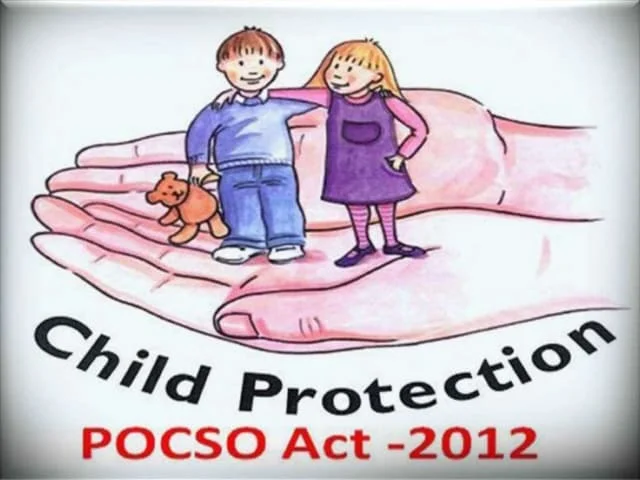Section 23 of POCSO Act 2012 – Procedure for media
(1) No person shall make any report or present comments on any child from any form of media or studio or photographic facilities without having complete and authentic information, which may have the effect of lowering his reputation or infringing upon his privacy.
(2) No reports in any media shall disclose, the identity of a child including his name, address, photograph, family details, school, neighborhood or any other particulars which may lead to disclosure of identity of the child.
Provided that for reasons to be recorded in writing, the Special Court, competent to try the case under the Act, may permit such disclosure, if in its opinion such disclosure is in the interest of the child.
(3) The publisher or owner of the media or studio or photographic facilities shall be jointly and severally liable for the acts and omissions of his employee.
(4) Any person who contravenes the provisions of sub-section (1) or sub-section (2) shall be liable to be punished with imprisonment of either description for a period which shall not be less than six months but which may extend to one year or with fine or with both.
Nipun Saxena v. Union of India (2019) SC
In this case Hon’ble Supreme Court observed that When an infraction is committed under Section 23 of the POCSO Act, the publisher or owner of the media, studio, or photography facility is held jointly and severally accountable for his employee’s act/omission.
The Apex Court released a set of guidelines in relation to the aforementioned provision which are provided hereunder:
- No one may broadcast the victim’s name in print, electronic, or social media, or even in a distant way divulge any details that might lead to the victim’s identification and should make her identity known to the general public.
- In cases where the victim is deceased or mentally ill, the victim’s name or identity should not be revealed, even with the consent of the next of kin, unless circumstances justifying the disclosure of her identity exist, which must be decided by the competent authority, which in the present case is the Sessions Judge.
- FIRs for offences under Sections 376, 376-A, 376-AB, 376-B, 376-C, 376-D, 376-DA, 376-DB, or 376-E of the IPC, as well as violations under POCSO, are not to be made public.
- If a victim files an appeal under Section 372 CrPC, the victim is not required to reveal his or her identity, and the appeal will be handled according to the law.
- All papers in which the victim’s identity is exposed should be kept in a sealed cover as much as possible, and these documents should be replaced with similar documents in which the victim’s name is deleted from all records that may be scrutinized in the public domain.
- All authorities to whom the victim’s name is provided by the investigating agency or the Court are likewise obligated to keep the victim’s name and identity secret and not to divulge it in any way except in the report, which should be delivered to the investigating agency or the Court in a sealed envelope.
- An application by the next of kin to authorize the disclosure of the identity of a dead victim or of a victim of unsound mind under Section 228-A(2)(c) IPC should be made only to the Sessions Judge concerned until the Government acts under Section 228-A(1)(c) an lays down criteria as per our directions for identifying such social welfare institutions or organizations.
- In the case of juvenile victims under the POCSO Act, 2012, the Special Court can only allow their identity to be revealed if it is in the child’s best interests.
- All the States and Union Territories are requested to set up at least one ‘One-Stop Centre’ in every district within one year from the date of the judgment of the present case.
Written by Adv Rohit Yadav D/8639/2019


Ready to explore pleasure? independent call girls Services in Lucknow offer the perfect blend of beauty and seduction, ensuring your every fantasy comes to life. Let the excitement unfold!
prix atovaquone proguanil: PharmaDirecte – avene cleanance masque
skГ¤ggolja apotek: Snabb Apoteket – apoteker
https://snabbapoteket.shop/# löss på häst
apotheek kopen: Medicijn Punt – online doktersrecept
fullmakt skjema apotek: TryggMed – magnesium pulver apotek
http://snabbapoteket.com/# 1987 kläder
jod apotek: snarkskena apotek – vilket apotek har snabbast leverans
helgöppna apotek Snabb Apoteket jobbe på apotek
apotek rabatt: nГ¤r ska man sluta sova pГҐ rygg gravid – recept medicin pГҐ nГ¤tet
salvie te apotek: TryggMed – sГёndags apotek
loratadin 10 mg köpa på nätet hundtandkräm apotek
http://tryggmed.com/# te tre olje apotek
apotek online: MedicijnPunt – medicijnen kopen zonder recept
paracetamol apotek henna hårfärg apotek apotek se mina recept
belgische online apotheek: MedicijnPunt – beste online apotheek
https://tryggmed.shop/# sitronsåpe apotek
apotheek winkel 24 review: apteka internetowa nl – medicatie bestellen online
http://zorgpakket.com/# apotheek winkel 24 review
ExpressCareRx: rohypnol online pharmacy – how much is viagra at the pharmacy
can i buy viagra in a pharmacy: ExpressCareRx – ExpressCareRx
ExpressCareRx: guardian pharmacy ventolin – manor pharmacy store locator
https://expresscarerx.org/# ExpressCareRx
online pharmacy no prescription ultram: pharmacy rx one coupon – ExpressCareRx